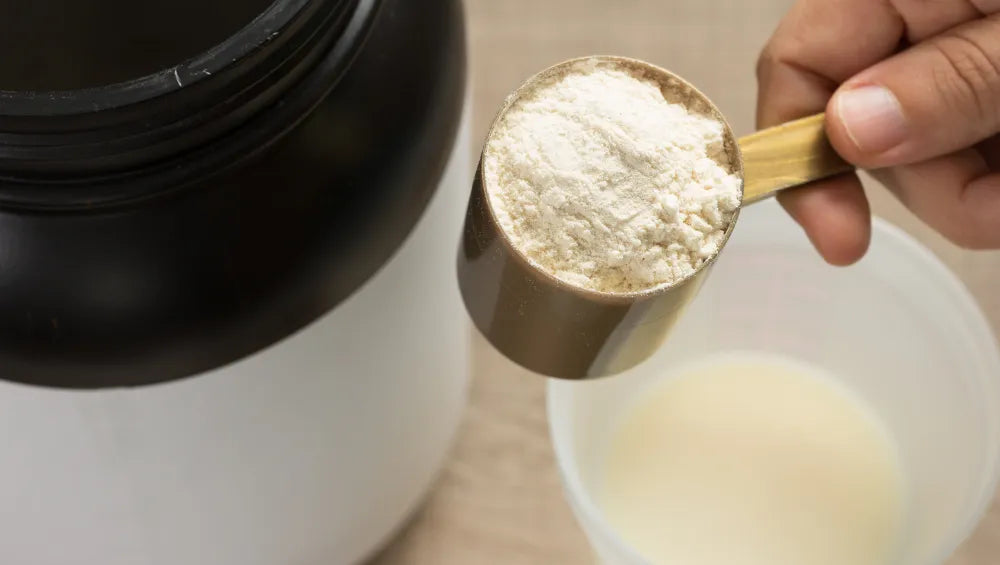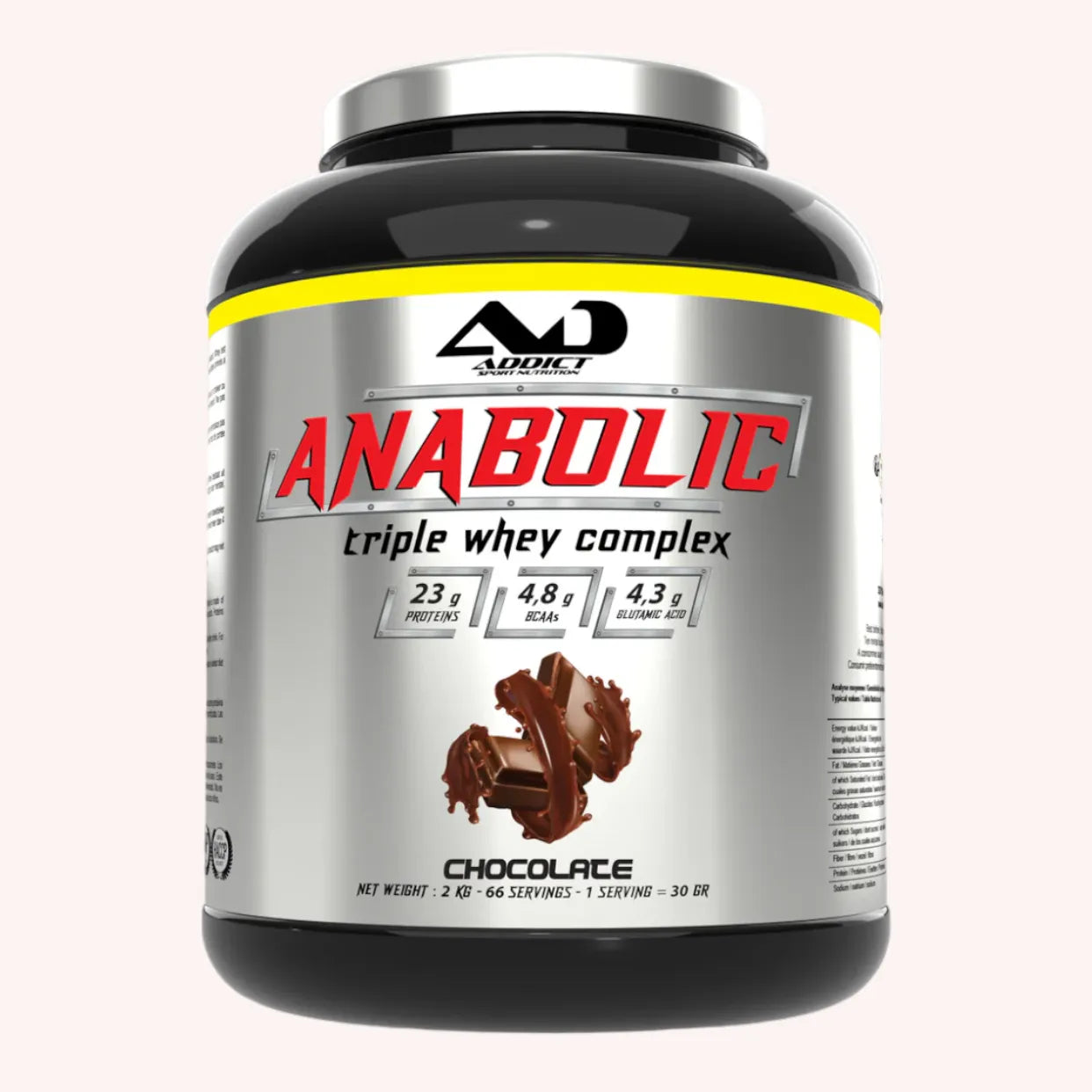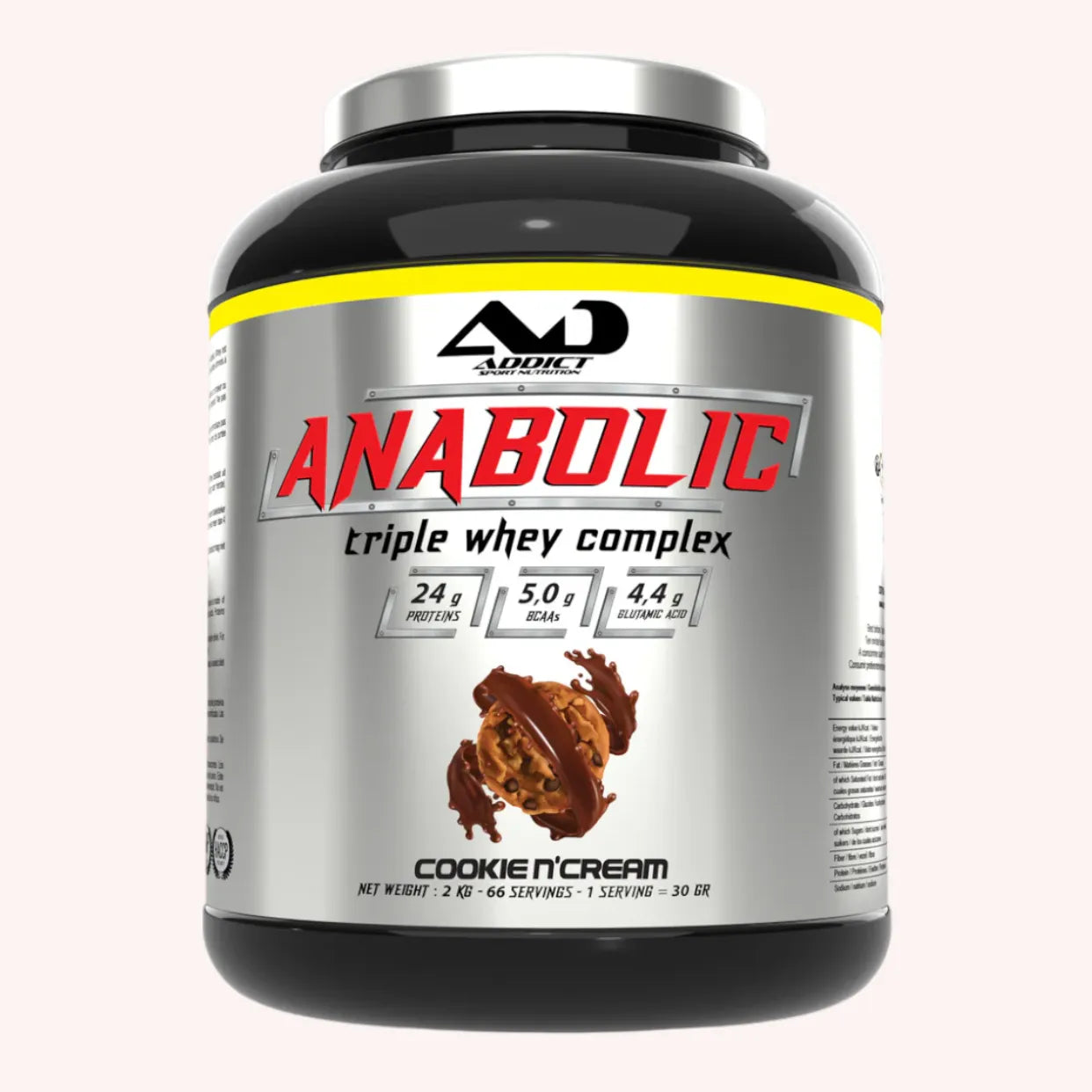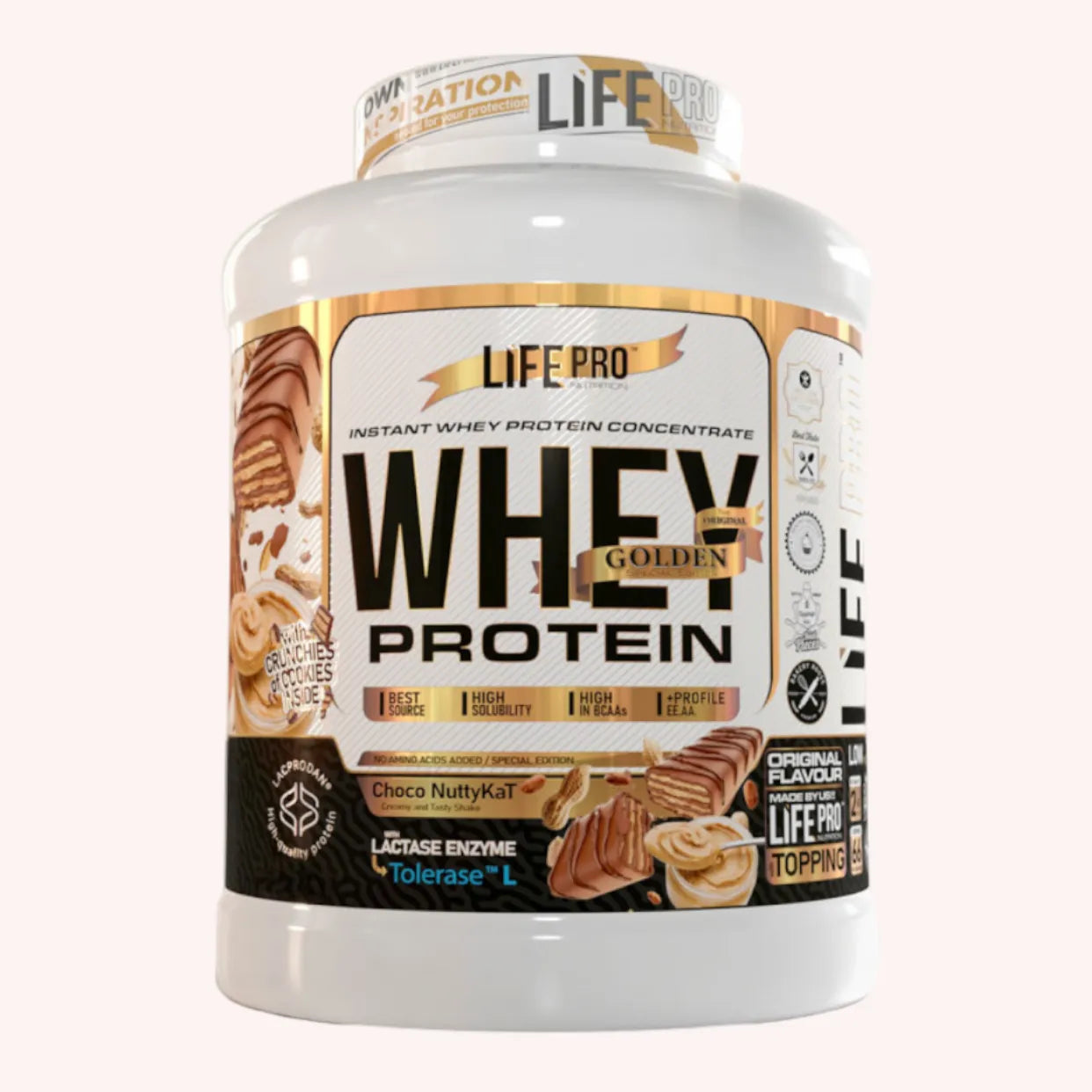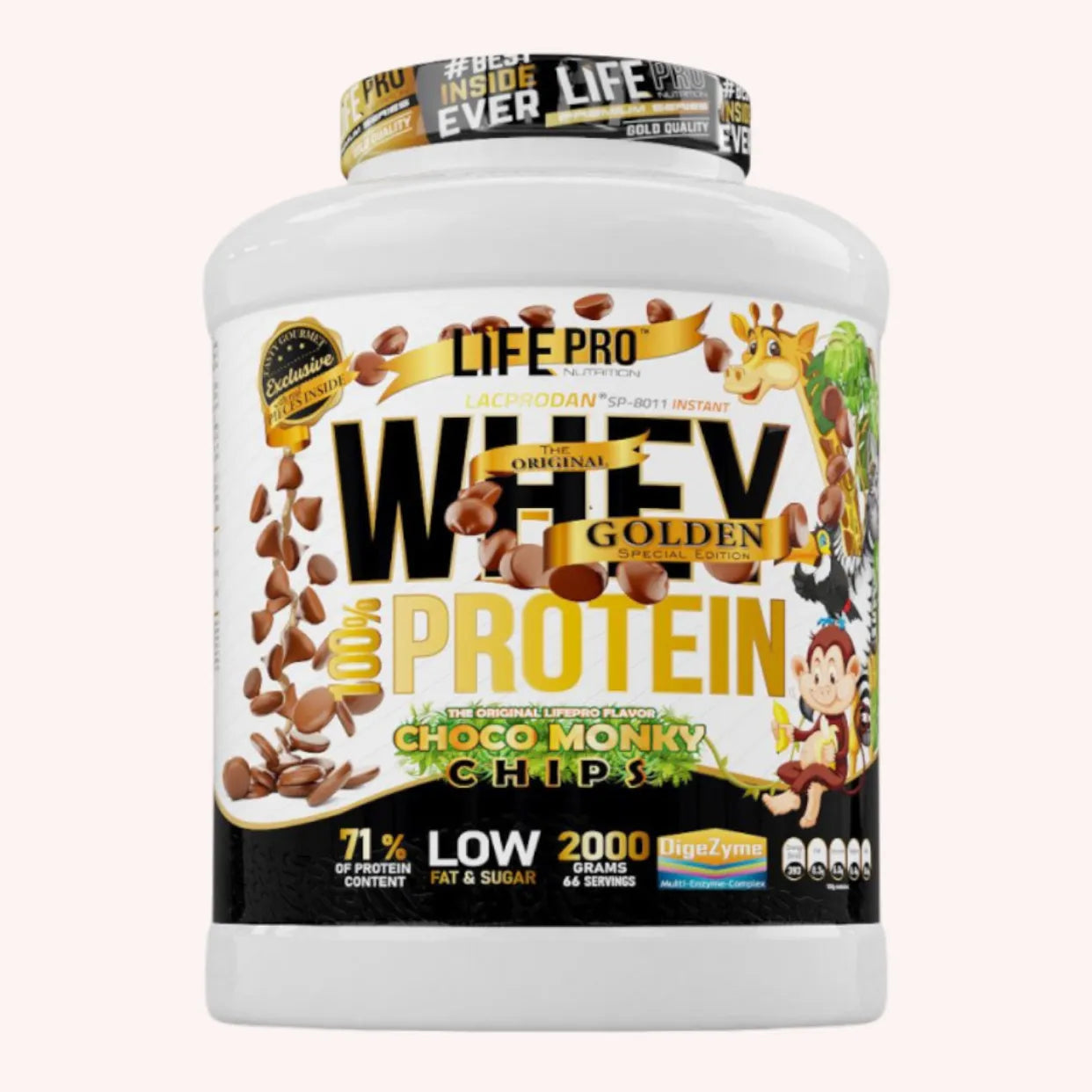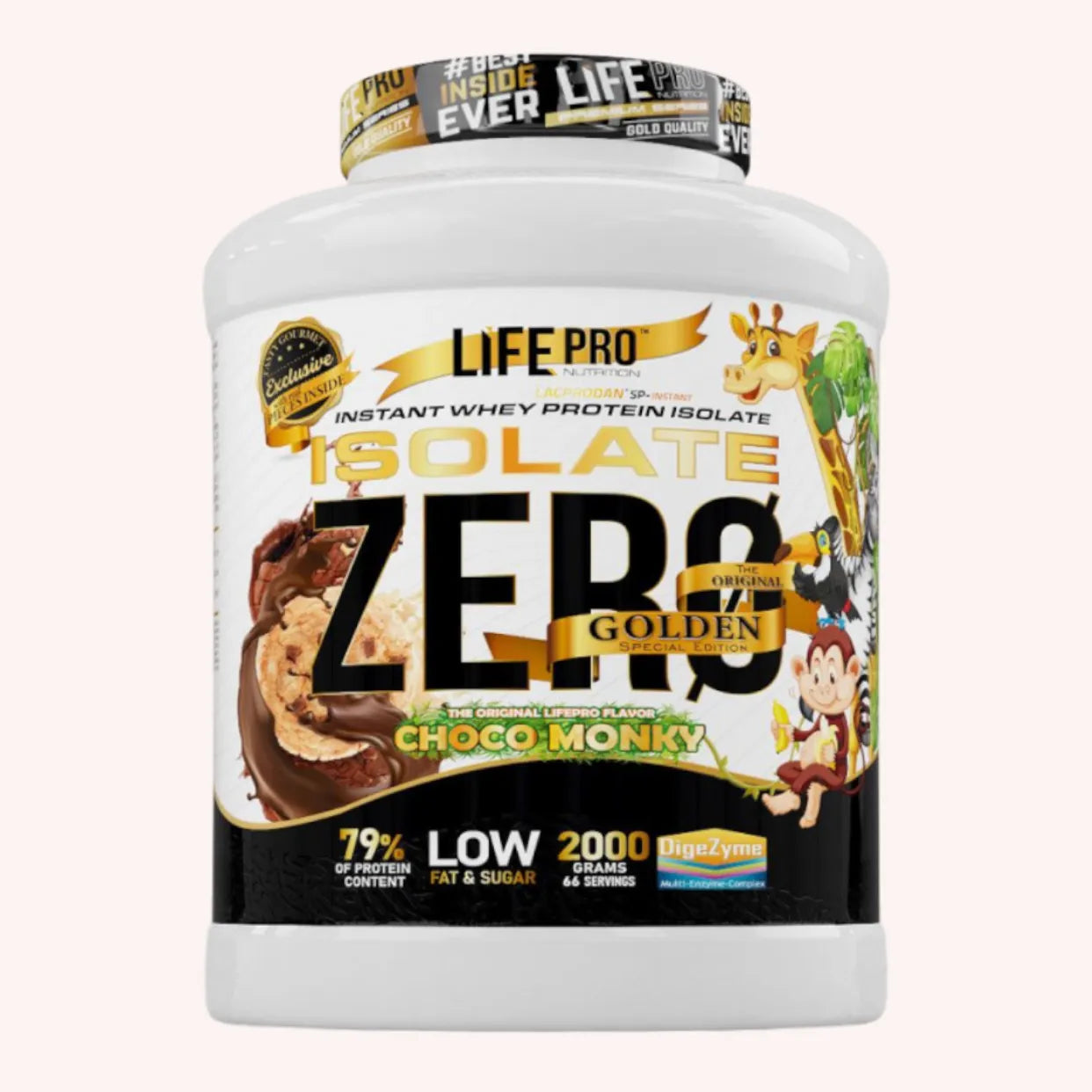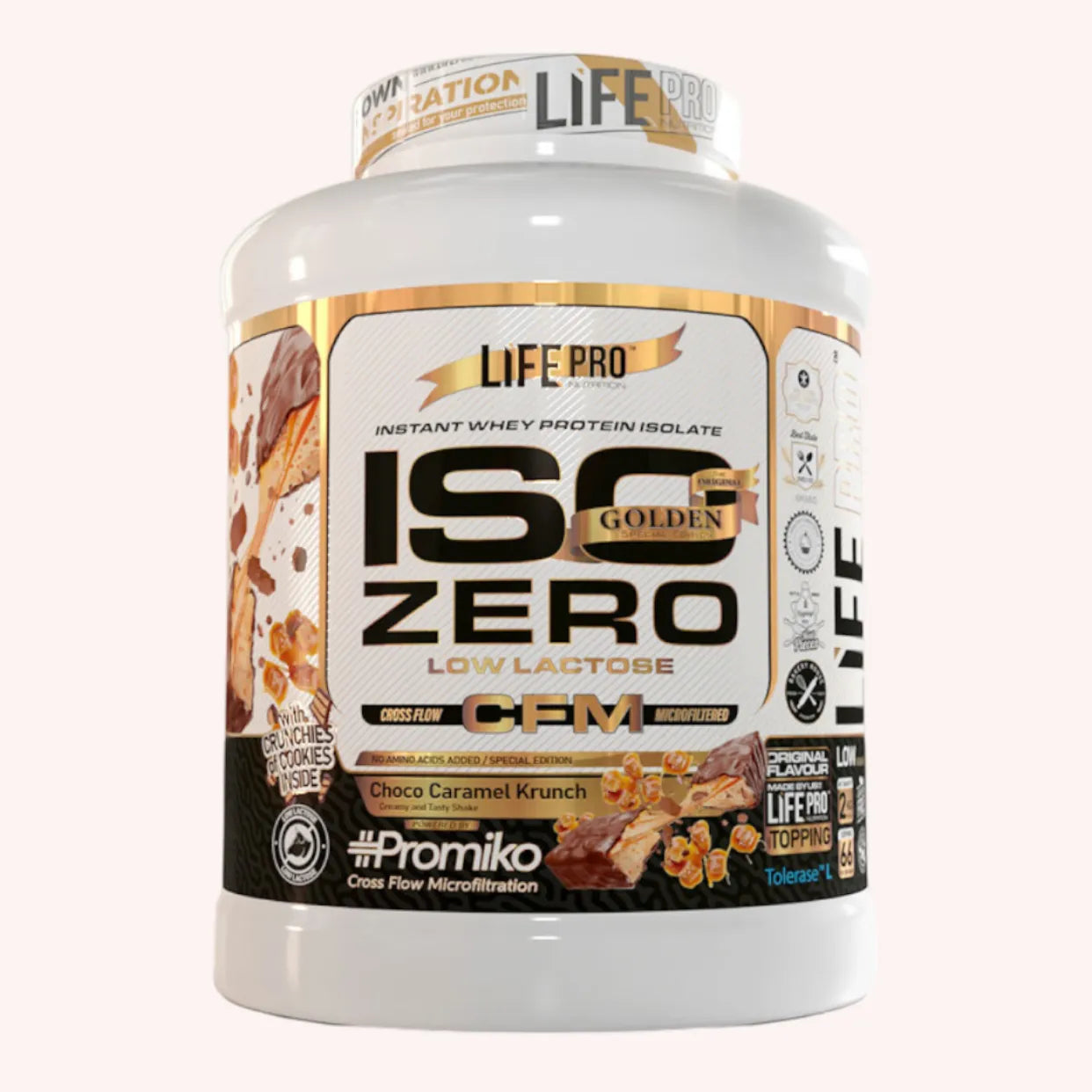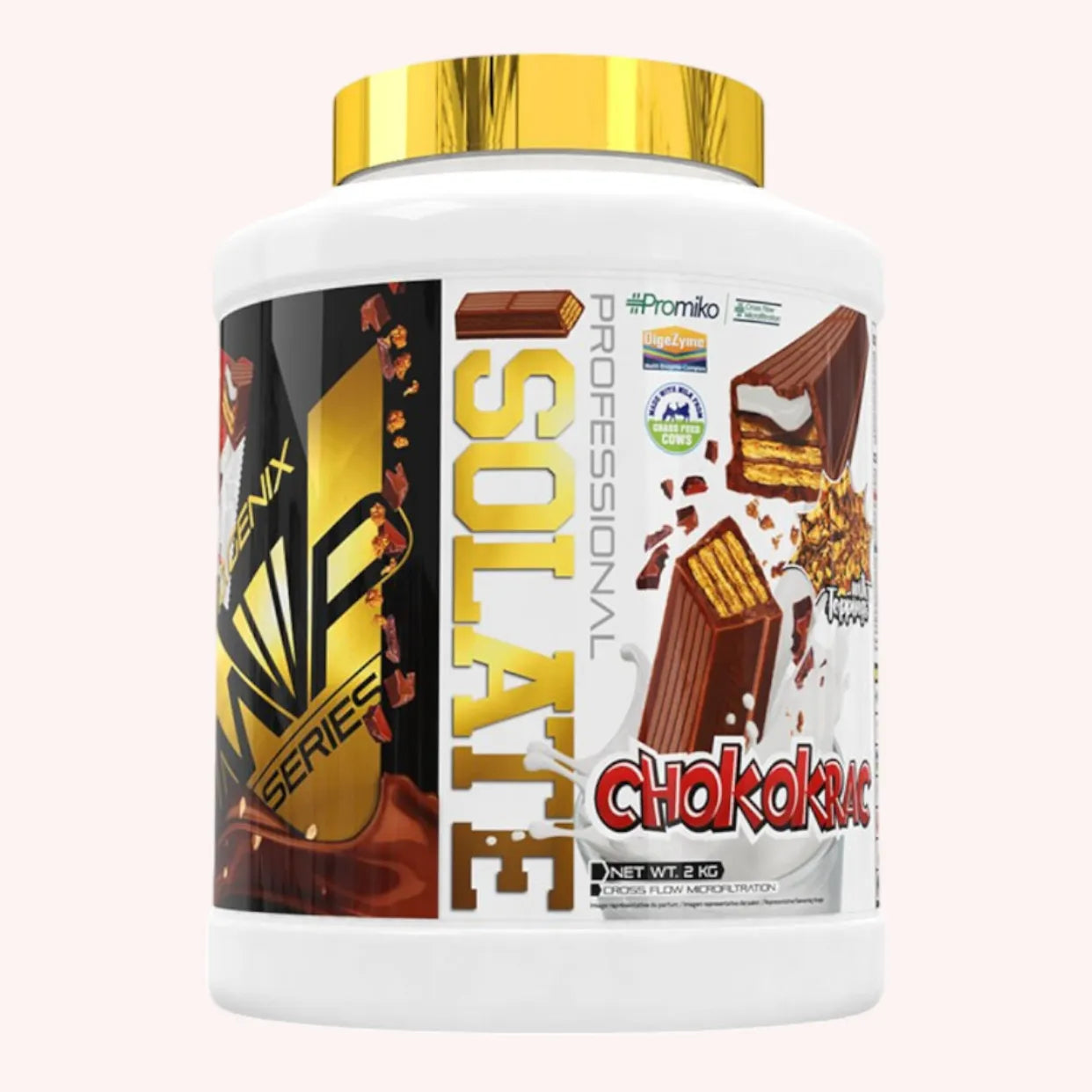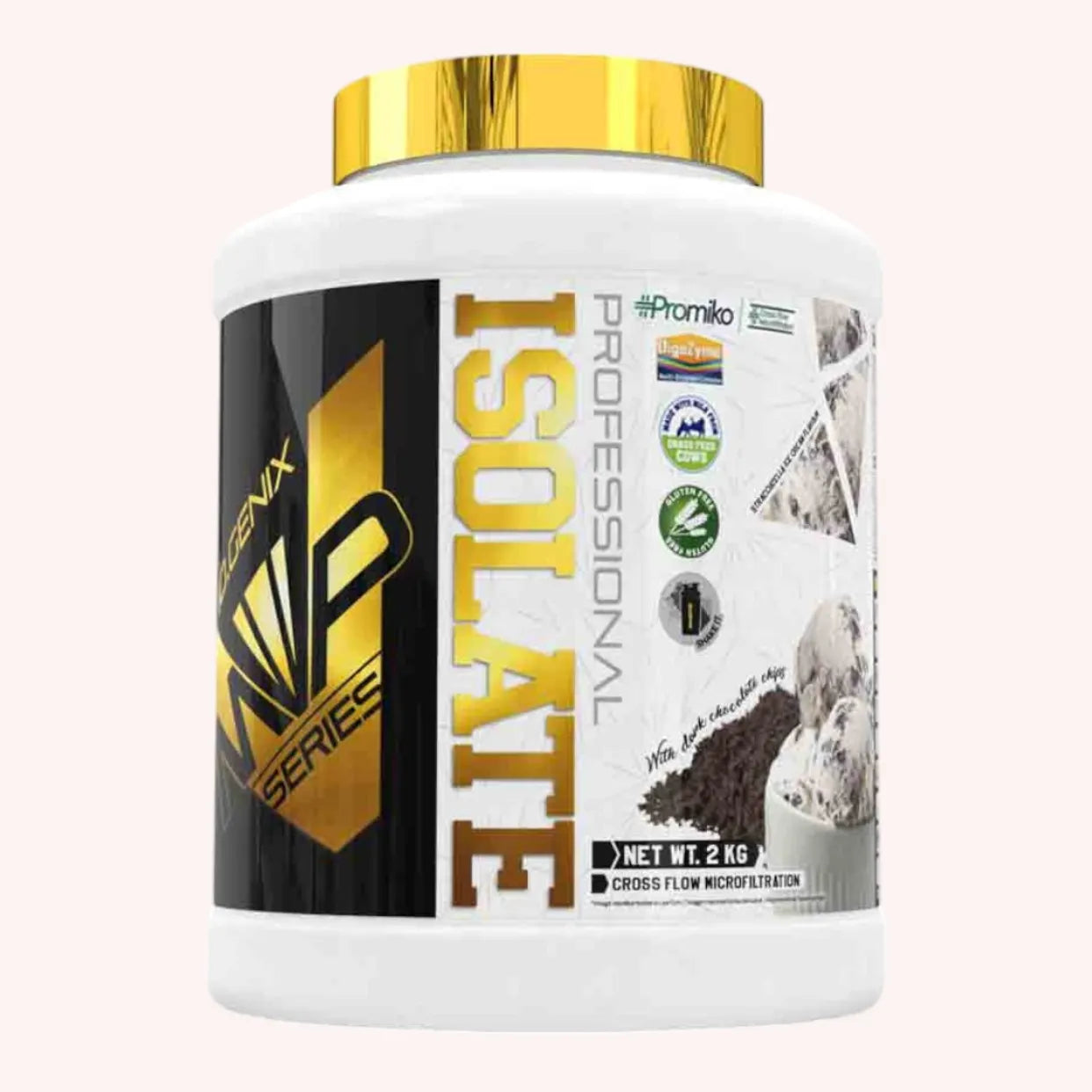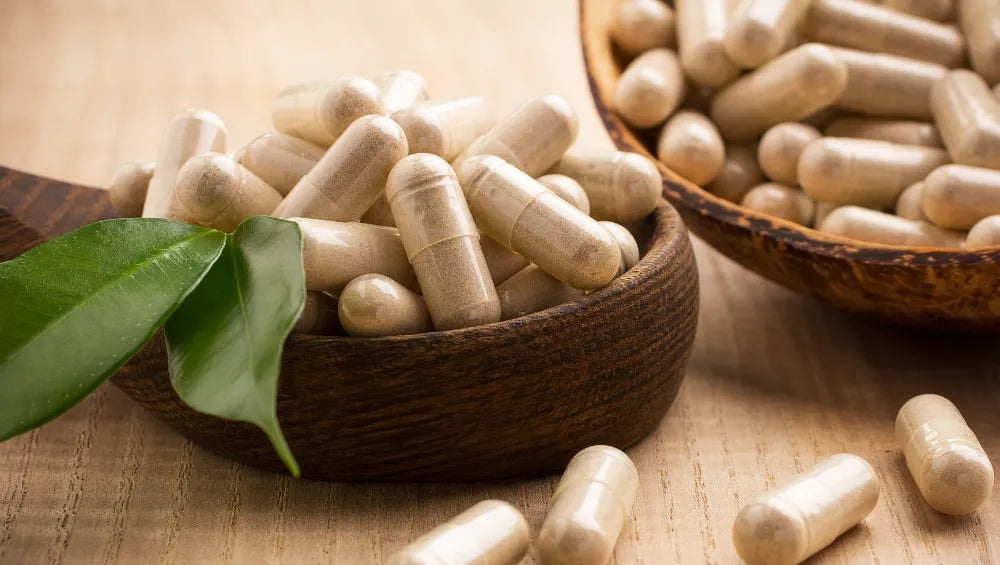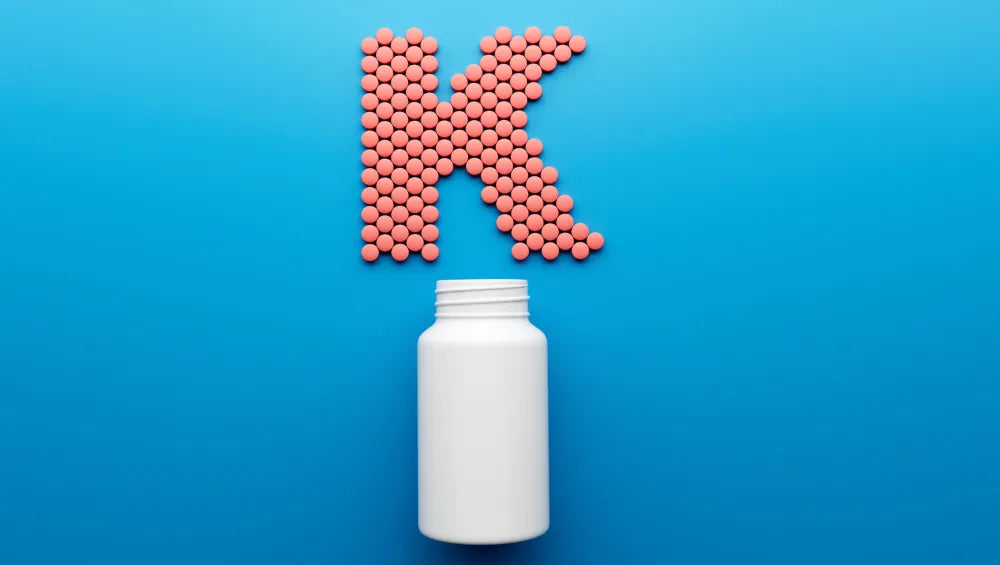Whey protein, commonly used by athletes and bodybuilders, is renowned for its benefits on muscle growth and post-workout recovery.
However, like any dietary supplement , it raises questions and concerns about its possible health risks. In the following lines, we will explore the different aspects of whey protein, demystifying preconceived ideas and highlighting its real side effects.
What is whey protein?
Whey protein, or whey protein , is a protein derived from milk . It is obtained during the cheese-making process, where milk is separated into curds and whey. The whey is then purified and processed into powder for use as a dietary supplement .
But what is whey protein used for? Well, it can help you gain muscle mass and reduce the time it takes to recover after intense physical activity. In addition to providing the essential amino acids needed for protein synthesis, whey protein helps meet the protein needs of athletes and active individuals.
The different types of whey protein
There are different forms of whey available on the market. Each type has its own characteristics and benefits, thus meeting specific needs.
Whey Concentrate
Whey concentrate is one of the most common forms of whey protein . It typically contains between 70 and 80% protein, with the remainder made up of carbohydrates, fats, and minerals. It's an affordable option for those looking to increase their protein intake while still benefiting from the other nutrients found in milk.
Hydrolyzed Whey
Hydrolyzed whey protein is pre-digested, meaning the protein is partially broken down into peptides. This facilitates absorption by the body, which can be particularly beneficial after intense workouts. It is also often well tolerated by people with milk protein sensitivities.
Whey Isolate
Whey isolate is processed to remove almost all fat and lactose, providing a protein concentration of over 90%. This form is ideal for athletes who want to maximize their protein intake while minimizing fat and carbohydrate consumption.
Clear Whey
Clear whey is an innovative version of whey protein that dissolves into a clear, refreshing drink. It's perfect for those who prefer a light, non-dairy alternative to traditional protein shakes. Plus, it absorbs quickly, making it ideal for post-workout recovery.
Vegan Whey
For those following a vegan diet, vegan whey is a great alternative. While not derived from milk, this alternative uses high-quality plant-based protein sources to provide a complete amino acid profile, similar to traditional whey.
After exploring the different whey protein options available, you can choose the one that best suits your personal needs and goals. Whether you're looking to increase muscle mass, improve recovery, or simply diversify your diet, there's a whey protein that's right for every situation.
Product quality
The quality of whey protein available on the market is one of the main concerns. Historically, some products were made from unreliable sources.
Although the majority of whey protein today is derived from reliable sources, there are still inferior products containing artificial additives, sweeteners, and preservatives. To avoid any risk of contamination, you should choose high-quality, certified, and tested whey protein.
Certifications to look for in a quality whey protein
When choosing a whey protein, we recommend looking for certain certifications to ensure the product's quality and safety. Here are the most common certifications to consider:
- GMP (Good Manufacturing Practices) Certified: This certification guarantees that the product is manufactured according to rigorous quality standards, ensuring purity and safety.
- NSF Certified for Sport: This certification is especially important for athletes. It guarantees that the product does not contain banned substances and is safe for athletic use.
- ISO 22000: This international standard specifies the requirements for a food safety management system and ensures that products are manufactured under safe hygienic conditions.
- Informed-Sport/Informed-Choice: These certifications indicate that each batch of products has been tested for banned substances and is safe for elite athletes.
- Organic Certifications: If you prefer natural products, look for organic certifications (e.g., USDA Organic, Ecocert) that guarantee ingredients are grown without pesticides or GMOs.
- Third-Party Lab Tested: Look for products that are tested by independent labs to verify their purity and active ingredient content.
These certifications guarantee you the consumption of a safe, effective product that meets the highest quality standards.
Misconceptions about the dangers of whey
A danger to the kidneys?
One of the most common misconceptions is that consuming whey protein can harm kidney health. However, this claim is unfounded.
No empirical scientific studies have demonstrated that whey protein, consumed in reasonable amounts, poses a risk to the kidneys in healthy individuals. Kidney problems may be exacerbated by excessive protein consumption only in people with pre-existing kidney disease.
A danger to the liver?
Similarly, some people believe that whey protein may be harmful to the liver. In reality, there is no scientific evidence to support this theory. The liver can be affected by excessive alcohol consumption or a long-term unbalanced diet, but not by moderate protein intake.
However, people with liver disease should exercise caution and always consult a doctor before consuming protein supplements.
The real side effects of whey
Digestive disorders
Whey protein, being derived from milk, contains lactose. People with lactose intolerance may experience digestive issues such as bloating, diarrhea, or abdominal pain.
If you are concerned, we recommend opting for whey isolates, which contain less lactose, or for vegetable proteins.
Acne
Whey protein consumption can cause acne in some people, especially young bodybuilders. This is due to dairy's ability to stimulate sebum production, which can clog pores and lead to breakouts.
Additionally, whey can increase testosterone levels, which can also contribute to the appearance of acne, or hormonal imbalances more generally.
Contraindications
Unbalanced diet
It's important not to rely exclusively on whey protein to meet your nutritional needs. A varied and balanced diet is essential for good health.
Consuming too much whey without providing other necessary nutrients can lead to nutritional deficiencies. It is important to incorporate whey as a supplement to a healthy diet and not as a meal replacement.
Chronic diseases
People with chronic illnesses, including kidney or liver disease, should avoid whey protein without prior medical advice.
Excessive protein consumption can aggravate these conditions. Affected individuals should consult a healthcare professional before incorporating protein supplements into their diet.
How to consume whey protein safely?
Do not replace a meal with a shake
Whey protein should not replace main meals. It is designed to supplement daily protein intake , especially after training to promote recovery and muscle growth.
A whey shake can be consumed after exercise or as a snack, but should never replace a full meal.
What dosage?
The recommended dose of whey protein varies depending on individual needs and fitness goals. Generally, it's recommended to consume between 1.6 and 2.2 grams of protein per kilogram of body weight per day, taking into account total dietary intake.
For an athlete, this could be equivalent to one or two whey shakes per day. It is essential not to exceed these amounts to avoid any adverse effects.
Integrate whey into your recipes
For those who do not enjoy whey in drink form, it is possible to incorporate it into various recipes.
Protein powder can be incorporated into your pancake mixes, porridges or cakes, providing a tasty alternative to increase your protein intake .
Whey protein is a safe and effective dietary supplement for athletes looking to increase muscle mass and improve recovery. However, it's essential to consume it responsibly, in a balanced way, and without excess.
Side effects are generally rare and can be avoided by choosing high-quality products and adhering to the recommended dosages. Before starting supplementation, we recommend always consulting a specialized nutritionist.
Sources:
- Baba WN, McClements DJ, Maqsood S. Whey protein-polyphenol conjugates and complexes: Production, characterization, and applications. Food Chem. 2021 Dec 15;365:130455. doi: 10.1016/j.foodchem.2021.130455. Epub 2021 Jun 24. PMID: 34237568. : https://pubmed.ncbi.nlm.nih.gov/34237568/
- SAKAMI W, HARRINGTON H. AMINO ACID METABOLISM. Annu Rev Biochem. 1963;32:355-98. doi: 10.1146/annurev.bi.32.070163.002035. PMID: 14144484 .: https://pubmed.ncbi.nlm.nih.gov/14144484/
- A Castro LH, S de Araújo FH, M Olimpio MY, B de B Primo R, T Pereira T, F Lopes LA, BS de M Trindade E, Fernandes R, A Oesterreich S. Comparative Meta-Analysis of the Effect of Concentrated, Hydrolyzed, and Isolated Whey Protein Supplementation on Body Composition of Physical Activity Practitioners. Nutrients. 2019 Sep 2;11(9):2047. doi:10.3390/nu11092047. PMID: 31480653; PMCID: PMC6769754. : https://pubmed.ncbi.nlm.nih.gov/31480653/




